Hamid Djalilian, M.D. Research lab
Dr. Djalilian’s research is focused on 4 primary areas. The first is the development of devices for the treatment of diseases of the ear. The primary device is a novel hearing device that directly vibrates the tympanic membrane. This device (Direct Hearing Device) would theoretically have a sound quality that would be similar to an implantable hearing aid without the need for surgery. The second device is a balance augmentation device which combines sensors and gaming technology to assess and rehabilitate imbalance. The third and fourth devices are focused on the development of devices for diagnosis and treatment of otitis media. Other devices of interest include a novel combined vestibular and cochlear implant and a free standing vestibular implant.
The second area of focus is on novel treatment of tinnitus. The lab has been working on a web-based customized sound and music therapy for the treatment of tinnitus. The work is based on the principle of harmonic therapy and its unique effect on the brain and the sources of tinnitus in the brain. This work has resulted in a technology transfer to Mind:Set Technologies which has commercialized this work in http://www.beyondtinnitus.com . Clinical trials of various tinnitus therapies are on-going.
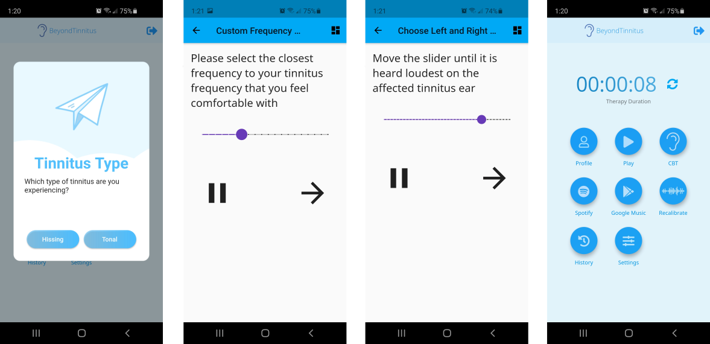
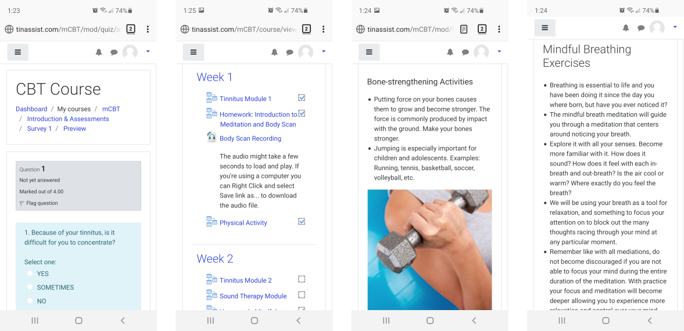
The third area of interest is in the analysis of large databases of health data. We are interested in examining trends, outcomes, and influencing factors in the treatment of diseases of the ear and skull base surgery by looking at databases of national and state samples.
The fourth area of research is clinical outcomes research related to novel treatments of conditions such as chronic ear infections, tympanic membrane perforations, skull base surgery, cochlear implantation, sudden hearing loss, perilymph fistula, and vertigo. An area of interest is the genetics and novel treatments of Meniere’s disease and migraine related ear disease. Surgical approaches and treatment of petrous apex lesions including cholesterol granuloma, cysts, cholesteatoma, among others is another area of current research.
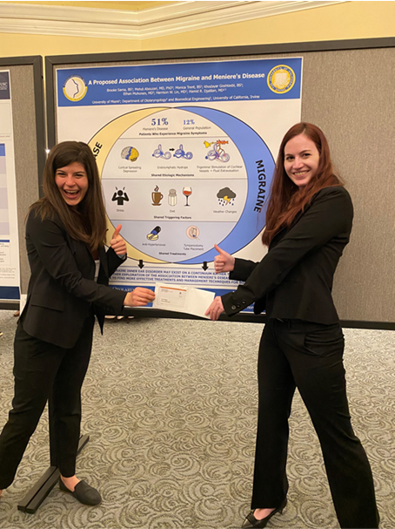
Clinical Excellence
a. Use of endoscopes and curved laser fiber to treat cholesteatoma. This has led to our center having one of the lowest rates of cholesteatoma recurrence in the country.
b. Use of novel techniques in cochlear implant surgery has led our center to have the highest preservation of taste function and hearing preservation after surgery.
c. Novel treatment of ear drum perforations in the clinic has led to closing a majority of perforations in the clinic (a problem that traditionally required surgery in all patients). We have developed a novel clinic procedure which uses the patient’s own growth factors to help close the hole in the ear drum in a majority of patients.
d. We have developed a novel method of treating sudden hearing loss that has better hearing results than the traditional treatment.
Clinical Research
-Randomized clinical trial of a novel combination drug for tinnitus
-Web-based sound and cognitive behavioral therapy for the treatment of tinnitus
-Electrical stimulation for the treatment of tinnitus
-Clinical trial of a novel direct drive micro hearing aid
-Clinical trial of the Smart Otoscope – a device that can help in the diagnosis of ear infections in children
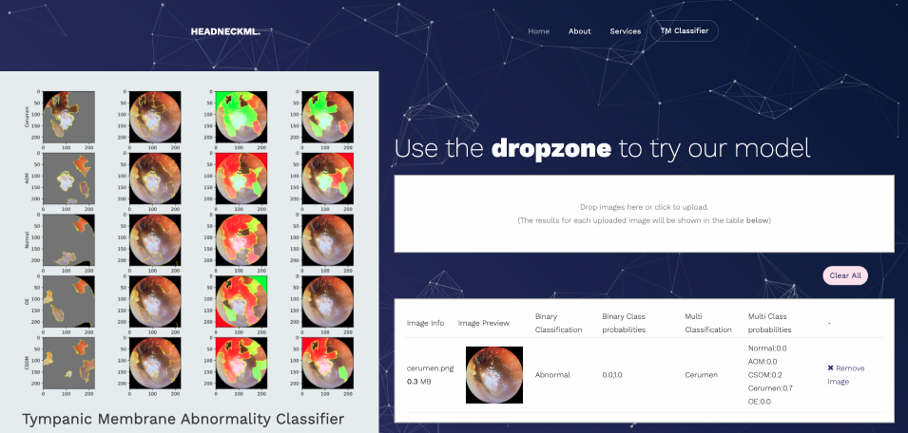
Publications
1. Abouzari M, Goshtasbi K, Sarna B, Lin HW, Djalilian HR. Proposal for a new diagnosis for U.S. diplomats in Havana, Cuba, experiencing vestibular and neurological symptoms. Med Hypotheses. 2020 Mar;136:109499. doi:
10.1016/j.mehy.2019.109499. Epub 2019 Nov 18. PMID: 31770686
(Synopsis: We analyzed all the testing and symptoms in the US diplomats in Cuba who developed problems with hearing and dizziness after a possible sonic attack. We compared the diplomats to a large group of patients with vestibular migraine and found that most of their symptoms were equivalent. We concluded that the US diplomats in Cuba are likely suffering from atypical migraine and could likely get better with the proper treatment regimen.)
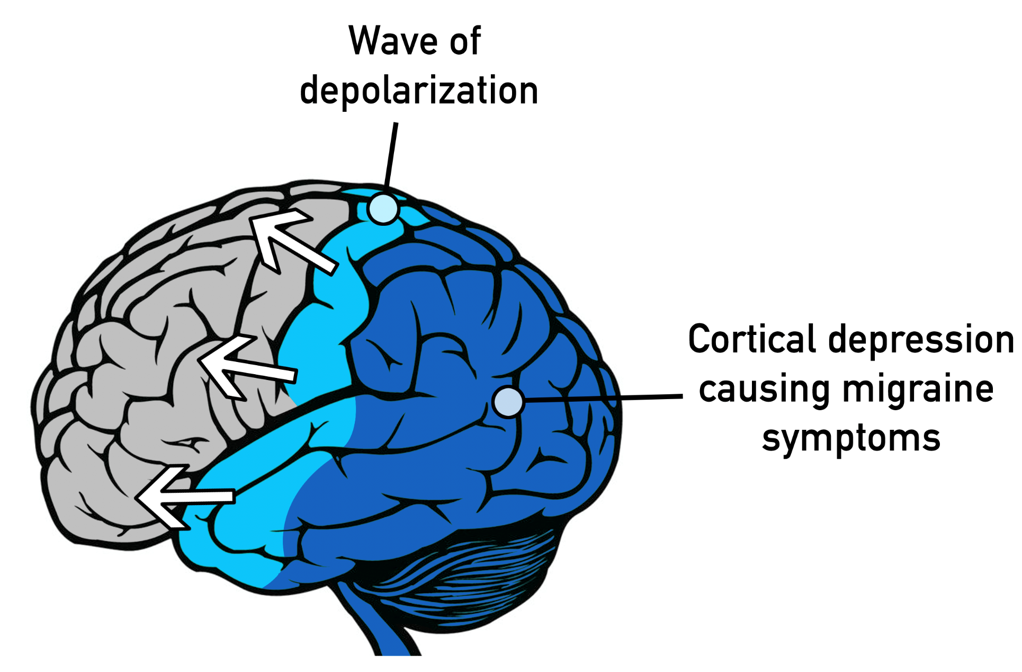
2. Abouzari M, Goshtasbi K, Chua JT, Tan D, Sarna B, Saber T, Lin HW, Djalilian HR. Adjuvant Migraine Medications in the Treatment of Sudden Sensorineural Hearing Loss. Laryngoscope. 2020 Apr 3. doi: 10.1002/lary.28618. Online ahead of print. PMID: 32243585
(Synopsis: We treated patients with sudden hearing loss with the standard medical therapy combined with two migraine preventative medications. We found that the patients with sudden hearing loss who were treated with migraine preventative medications had better hearing compared to those who received the standard (steroid by mouth and via injection in the ear).
3. Goshtasbi K, Abouzari M, Moshtaghi O, Sahyouni R, Sajjadi A, Lin HW, Djalilian HR. The changing landscape of vestibular schwannoma diagnosis and management: A cross-sectional study. Laryngoscope. 2020 Feb;130(2):482-486.
(Synopsis: We looked at a cohort of 789 acoustic neuroma patients who were treated between 1979 and 2017. We found that half of the patients who were treated in the last 15 years have had non-surgical management. Prior to that period, most patients were getting surgery for this tumor. There is a trend towards doing less surgery for acoustic neuroma over time. We found that younger patients and patients with large tumors are treated with surgery.)
4. The association of age, body mass index, and frailty with vestibular schwannoma surgical morbidity. Goshtasbi K, Abouzari M, Soltanzadeh-Zarandi S, Sarna B, Lee A, Hsu FPK, Djalilian HR. Clin Neurol Neurosurg. 2020 Oct;197:106192.
(Synopsis: We analyzed a group of 1405 patients with acoustic neuroma. We found that older patients in general had a shorter duration of surgery. This is most likely due to a less aggressive surgical approach in older patients. Patients who were more frail (had more medical problems) had a much longer hospital stay. Also patients with a higher weight were more likely to get blood clots in the legs. This study allows us to prepare the patient better for surgery and pay more attention to specific groups of patients to reduce complications.)
5. Adapting Personal Therapies Using a Mobile Application for Tinnitus Rehabilitation: A Preliminary Study. Abouzari M, Goshtasbi K, Sarna B, Ghavami Y, Parker EM, Khosravi P, Mostaghni N, Jamshidi S, Saber T, Djalilian HR. Ann Otol Rhinol Laryngol. 2020 Oct 8:3489420962818. doi: 10.1177/0003489420962818.
(Synopsis: We developed a mobile application (App) for tinnitus rehabilitation. The application provided sound therapy and cognitive behavioral therapy designed specifically for the patient’s individual tinnitus sound. In a clinical trial of 30 patients, a 32% reduction in the tinnitus severity as measured by the Tinnitus Handicap Inventory when the patients used the app. The control group only had an 8.5% reduction in their tinnitus. This study showed that using a customized sound and cognitive behavioral therapy can benefit patients with tinnitus. This allows patients with tinnitus to get therapy at distant locations.)
6. Prediction of vestibular schwannoma recurrence using artificial neural network. Abouzari M, Goshtasbi K, Sarna B, Khosravi P, Reutershan T, Mostaghni N, Lin HW, Djalilian HR. Laryngoscope Investig Otolaryngol. 2020 Feb 17;5(2):278-285. doi: 10.1002/lio2.362. eCollection 2020 Apr.
(Synopsis: We evaluated the chance that a patient’s tumor could recur after surgery for acoustic neuroma. We found that using an artificial neural network, we can predict with high degree of sensitivity which patients will have a recurrence of tumor.
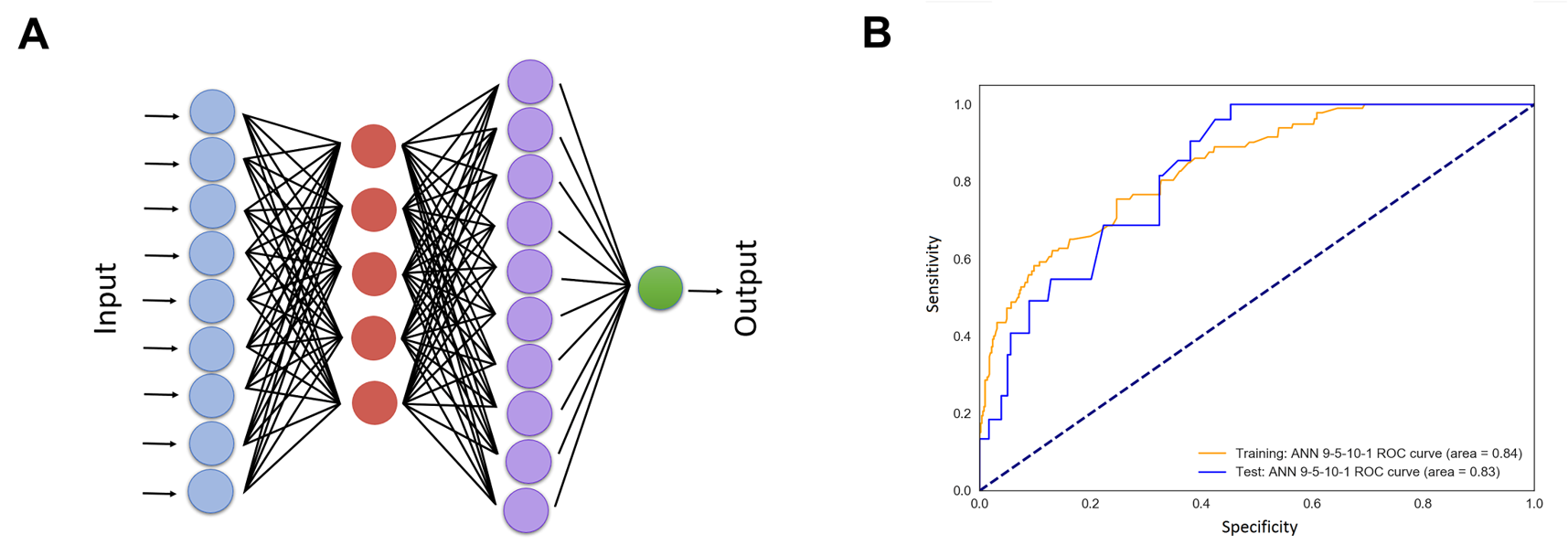
7. Perilymphatic Fistula: A Review of Classification, Etiology, Diagnosis, and Treatment. Sarna B, Abouzari M, Merna C, Jamshidi S, Saber T, Djalilian HR. Front Neurol. 2020 Sep 15;11:1046. doi: 10.3389/fneur.2020.01046.
(Synopsis: We performed the most comprehensive study on diagnosis and treatment of perilymphatic fistula. We have found that there is a trend towards treating these patients with an intratympanic blood patch procedure, which was developed at UC Irvine. This prevents the need for invasive surgery that requires anesthesia.
Research Awards
R01 from NIH: Tinnitus Treatment with Targeted Electric Stimulation.
(Investigators: Fan-Gang Zeng, Hamid Djalilian, Harrison Lin)

